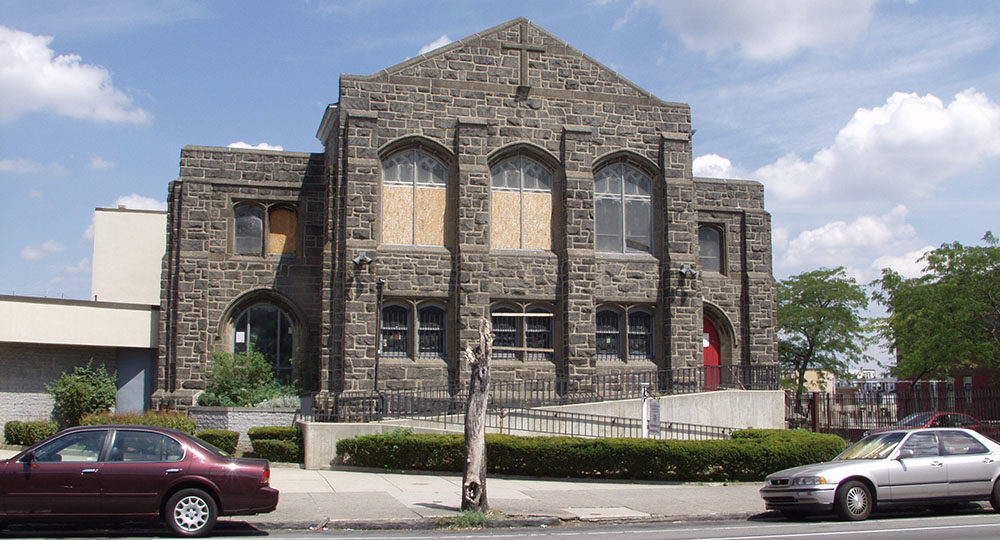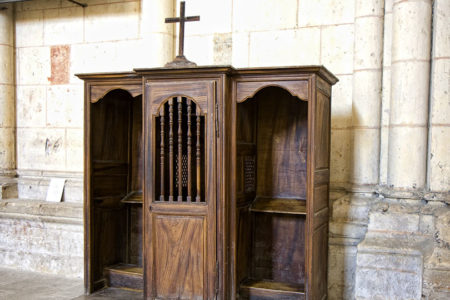Jesus Is Better Than…
Imagine this scenario. A preacher comes to your town. He’s dynamic and persuasive, but his message leaves you no little bit troubled. He insists that God has told him it’s time for a change, the institution of the local church has outlived its usefulness, and Christians everywhere ought to abandon the church and express their faith in an entirely new and different way. Would you not say to yourself, “Hold on. My New Testament commands me to be faithful to the local church”? And, “Furthermore, God has used that organism effectively to fulfill His purposes on Earth for two millennia. And now I’m told that it’s time to desert the church?” Would you not find it difficult to accept that teaching as being truly from God?
The parallel is certainly inexact. But perhaps it helps us appreciate what God demanded of believers in the early decades of the Christian era.
For fourteen hundred years the Temple in Jerusalem had been the divinely ordained focus of all worship of Yahweh. It was there God had placed His name, and it was through the ritual carried out in those courts that He was to be approached. But now the time had come to abandon that system. The Mosaic Covenant had been shown to be the Old Covenant, fulfilled and rendered obsolete by the provision of a blessed and long-awaited New Covenant (Heb. 8:13). The Old was noble and precious, but it was never intended to be permanent or final. Indeed, much of it was designed to teach worshipers that the covenant could not, in fact, be all God would ever provide and to give worshipers a hunger for something better. Now, in Messiah Jesus, that better covenant had come. This synopsis is the message of the book of Hebrews.
No doubt it is difficult for 21st-century believers to understand how shocking, how radical, that message truly was. We stand some two thousand years removed from that day; the transition from Old Covenant to New has long since been so thoroughly made that it is easy for today’s Christians to forget such a transition was ever necessary. Thus the first-century dynamics that underlie the book of Hebrews are difficult to appreciate.
Return, then, for a moment, to the opening scenario. Imagine what it would have been like to confront such radical revelation, to struggle with the demand that you abandon something that for centuries had been at the very core of all of the worship and religious expression of your ancestors. Try to appreciate with what heaviness of heart and reluctance of mind you would have contemplated such a dramatic change in all that you had known. Consider how it would have broken your heart when, in A.D. 70 at the hands of the Romans, God put an exclamation point on the book of Hebrews, violently ending the physical exercise of the Old Covenant through the destruction of the Temple. In recovering some of the emotion and pathos of what God was expecting of that generation of believers, you will perhaps appreciate anew the blessedness of this truth: In what He is and in what He has provided, Jesus is better!
The Refrain
of the Book of Hebrews
Throughout Hebrews, the same refrain surfaces again and again. Jesus is better than the angels (1:4); if the Word spoken through angels was steadfast (that Word being the Old Covenant, “ordained by angels,” Gal. 3:19), how much more ought we to heed the gospel message, “which at the first began to be spoken by the Lord” (Heb. 2:3).
Again, Jesus possesses a better priesthood, not after the order of Aaron but after the order of Melchizedek, because Jesus offers a better hope than what was available to those who knew only the ministry of the Aaronic priests (7:1–19). That better hope exists because Jesus has cleansed not the earthly Tabernacle but the heavenly, “with better sacrifices” (9:23, plural because “the one sacrifice [of Christ] stands as the complete fulfillment of all the different sacrifices in the old order”1).
The earthly Tabernacle was only a pattern of the heavenly realities; now that the work has been completed to afford access to God’s presence, that earthly pattern is unnecessary. The heavenly Tabernacle having been cleansed, Jesus can appear on our behalf before the face of God.
Furthermore, Christ’s sacrifice was better because it needed to be offered only once; it was full and final. As the book of Hebrews emphasizes, He came “to put away sin by the sacrifice of himself” (9:26) and “was once offered to bear the sins of many” (v. 28). Thus those who claim His sacrifice as their own by faith can now eagerly wait for Him to “appear the second time without sin unto salvation” (v. 28).
But most central to the message of Hebrews is the happy reality that Jesus has become the Mediator of a better covenant, based on better promises (Heb. 8:6). That better covenant is the New Covenant, made possible through the shed blood of Messiah Jesus (Lk. 22:20; cf. 1 Cor. 11:25) and described by Paul as “not of the letter, but of the spirit” (2 Cor. 3:6).
Indeed, the argument of the book of Hebrews can be reduced to this: Given the fact that God has provided a better covenant (7:22; 8:6) and a better priest (7:7), who offered Himself as a better sacrifice (9:23) and thus has afforded a better hope (8:6), it is time to acknowledge that the Old Covenant “decayeth and groweth old” and “is ready to vanish away” (8:13).
Two Misconceptions
Two misconceptions often arise from that remarkable proposition. First, believers sometimes wrongly conclude that the Old Covenant must have been wicked, flawed, or ignoble. This assumption is wrong. The Old Covenant constituted an outstanding expression of God’s grace and wisdom—perfect and effectual for the purposes for which God intended it. Under its terms, Yahweh became the real, functioning King of the nation of Israel. He took up residence in the nation’s midst in the person of the Glory Cloud and invited men to approach Him. But such an approach was exclusively on God’s terms. Consequently, the covenant included provisions for an animal of God’s choosing to die on behalf of a worshiper who deserved death. The covenant made it clear that the worshiper’s faith in God’s promise concerning that offering would be accounted to him for righteousness (a principle established in Gen. 15:6) and that atonement would thus be made (Lev. 17:11). All of this is wonderfully “good” (1 Tim. 1:8).
However, the Old Covenant’s “weakness and unprofitableness . . . made nothing perfect” (Heb. 7:18–19). That is, it could not perfect the sinner. Nor was it intended to do so. It was anticipatory, designed to teach men their sinfulness and hopelessness apart from God’s provision and thus to drive them to that provision.
Nor was the Old Covenant set aside because it was intrinsically wicked; God did not rid the world of some hideous mistake. Rather, He demanded that those who follow Him abandon the precious and efficacious covenant arrangement with which He had graced them for several hundred years, only because something infinitely better has now been provided. God did not begin providing something good for His people with the New Covenant; rather, He provided something even better. Thus the Old Covenant system was annulled (8:13) because Jesus brought something better in its place.
A second misconception is that the Law worked well for a time but later began to wane in its capacity to fulfill its function. Again, this theory is wrong. To be sure, the New Covenant was first explicitly foretold late in the Old Testament era by Jeremiah, who gave it the title new covenant(Jer. 31:31). It was then expanded on by Ezekiel under the heading of “a covenant of peace” (Ezek. 34:25; 37:26) and “the everlasting covenant” (Ezek. 37:26, cf. Heb. 13:20).
However, the Old Covenant actually began to grow old at Mt. Sinai. That is, elements of it were powerful and constant reminders that something more was needed, that the blood of bulls and goats could not fully or finally take away sins (Heb. 10:4). For example, (1) a priest had to offer sacrifices on behalf of himself (Heb. 5:3; 7:27); (2) priests died, demonstrating themselves to be sinners (7:23); (3) a priest had access only to an earthly Tabernacle, which is but a “shadow of heavenly things” (8:5), and could enter that earthly Tabernacle but once a year (9:6–9); and (4), perhaps most powerfully, the last sacrifice was never offered, the atoning work never fully and finally accomplished (9:25; 10:11). All of these elements, intrinsic to the Old Covenant, were intended to make the most devout worshiper hungry for something more.
Consequently, the Old Covenant did not become old with the passage of time; rather, it was fashioned to be old—to look forward to (indeed, to teach the worshiper to look forward to) something yet to come, some greater provision capable of perfectly accomplishing that which the Old Covenant could only partially accomplish, something better.
The Blessedness of a Better Provision
The book of Hebrews was penned to persuade first-century believers to submit to God’s demand that they surrender the Old Covenant and see that demand as gracious and wise, made only because God had provided something even better. Believers today do not struggle with the temptation to cling to the Old Covenant and all of its rituals. Indeed, today’s believers are likely oblivious to the reality that the New Covenant they cherish is, in fact, built solidly on the revelational foundation provided in the Old Covenant.
Nevertheless, that struggle constitutes the historical setting of the book of Hebrews, the book that reminds us so carefully that Jesus is the better mediator of a better covenant based on better promises. Perhaps it would be beneficial to ponder the greater blessedness of the
New Covenant against the lesser blessedness of the Old Covenant. Perhaps then we will become even more impressed with the overwhelming superiority of our Lord Jesus Christ.
ENDNOTES
- Donald Guthrie, The Letter to the Hebrews, Eerdmans, Grand Rapids, 1983, p. 196.







